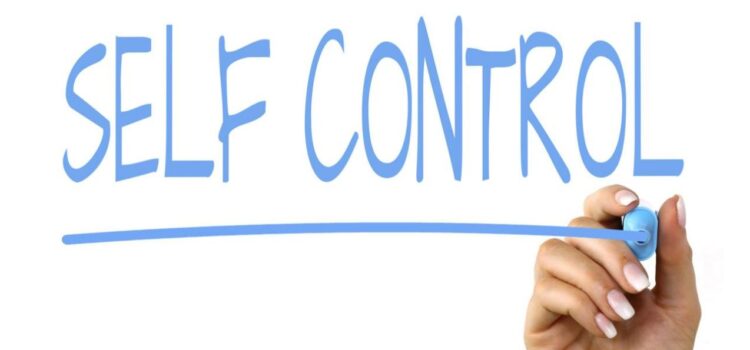

This article is an excerpt from the Shortform book guide to "The Willpower Instinct" by Kelly McGonigal. Shortform has the world's best summaries and analyses of books you should be reading.
Like this article? Sign up for a free trial here .
What is The Willpower Instinct about? What can you learn from Kelly McGonigal’s research?
The Willpower Instinct by Kelly McGonigal explains how our natural willpower gets compromised by stress, distraction, lack of sleep, not enough exercise, and other external factors. She gives advice on how to improve your self-control and take your willpower back.
Continue reading for a brief overview of The Willpower Instinct.
The Willpower Instinct Overview
The American Psychological Association says that Americans name “lack of willpower” as the main reason they can’t achieve what they want in life. Most would jump at the chance to have more willpower, yet few of us realize that willpower isn’t a character trait or a virtue but rather an innate instinct that’s wired into our brains.
The Willpower Instinct by Stanford University psychology professor Kelly McGonigal explains how our natural willpower gets compromised by stress, distraction, lack of sleep, not enough exercise, and other external factors. Utilizing scientific research, McGonigal provides a framework for how to increase our willpower and control our behaviors, appetites, and emotions. Each of this book’s sections describes various reasons for willpower failures and proposes methods to circumvent those failures.
You need willpower whether you want to start a business, train for a marathon, overcome procrastination, give up sugar, eat more vegetables, write a novel, break up with your social media accounts, or achieve any other major goal. Even if you’re not looking to start a new habit or break an old one, your ability to activate your willpower on an everyday basis has a direct impact on your health, relationships, career, and financial security—and also how you feel about yourself.
How Your Mind Affects Your Willpower
We’d all like to believe that we have control over our own behavior, but the truth is that accessing our willpower is often a struggle. Often we’re at odds with ourselves: We want to achieve our long-term goals, but we also want to do what feels good right now. We might desire the long-term happiness of a healthy, slim physique, but we also want the 30-second happiness of devouring a silky lemon cupcake. We know we can’t have both, but that doesn’t stop us from wanting both.
Prefrontal Cortex: Willpower Control Center
In human brains, the prefrontal cortex is tasked with the important job of self-control. Some people are born with a larger, better developed prefrontal cortex than others, which makes a difference in their behaviors. When people with a larger prefrontal cortex think of saying “yes” to a second helping of dessert, their brains remind them that this is a poor idea, and they say “no” instead.
The rest of us have to contend with having what scientists call “one brain but two minds.” One mind caters to immediate gratification. The other mind delays gratification in the interest of achieving long-term goals. Our prefrontal cortex struggles to keep us focused on the long game, but when we are tired, distracted, stressed, or even mildly intoxicated, we tend to give in to immediate gratification.
We can’t alter the fact that we have conflicting desires, but we can learn strategies to minimize those conflicts. The foundation of gaining more willpower is understanding your own self-control traps and pitfalls. Gaining self-knowledge about how and why you fail at self-control helps you create strategies to succeed.
Distraction Diminishes Willpower
An important key to achieving greater self-control is paying greater attention to the hundreds of tiny choices we make each day. The choices we make while we’re distracted are usually founded on impulse, not deliberate thinking. Instead of operating on autopilot, we need to train our minds to wake up to the small daily decisions that have a direct impact on whether or not we achieve our long-term goals. For example, if you want to get fit, do you start the day by putting on your bedroom slippers or your exercise shoes?
In one study, people were asked how many food-related decisions they make in one day. Most people guessed an average of 14, but when they actually recorded each food-related decision they made in a day, they found it was more like 210. Instead of making small decisions by default, we need to cultivate our ability to pay attention.
Willpower Hack: Train Your Brain Through Meditation
No matter what your age, your brain is trainable, and that means you can improve your willpower. With training, you can learn to keep your big-picture goals at the forefront of your mind, which will motivate you to avoid getting derailed by fleeting desires. (In the moment, you may think you want to blow off some steam by lying on the couch and streaming your favorite show, but since you’ve decided that your big goal is to write a novel, that should take precedence in your mind.)
One brain-training method that’s particularly effective is meditation. Even a five-minute daily practice of focusing on your breathing and quieting your mind can increase your impulse control. The goal is not to eliminate your thoughts; the goal is to keep your thoughts from ruling you. The training comes from the simple act of bringing your wandering thoughts back to focus on your breathing.
Studies show that people who meditate regularly actually have more gray matter in the prefrontal cortex. Meditation increases blood flow to that part of the brain, which makes it grow and get more efficient at processing. As a result, it becomes easier to handle distractions and make good decisions.
How Your Body Affects Your Willpower
Self-control is not just a matter of making up your mind to do something—the body has to partner up with the brain to make it happen. If you’re struggling to restrain your impulses or force yourself to work on a certain task, you may need to adjust your physiology.
Any time you’re lured into satisfying a craving or impulse—one that’s contrary to your long-term goals—you must turn off your brain’s innate fight-or-flight response and turn on its pause-and-plan response. In fight-or-flight mode, your brain and body are wired to act instinctively. There’s no thinking involved—the brain’s message to the body is simply, “Act now!” In pause-and-plan mode, your brain slows down for deliberate, careful analysis. It tells the body to wait, not act, and engages its higher-order thinking to weigh and balance options. With slow, deliberate thinking, you have a much better chance of making decisions that support your long-term goals.
Greater Heart Rate Variability Equals More Willpower
Another physiological factor has a huge impact on our ability to access willpower, and that’s heart rate variability (HRV). HRV unlocks your ability to access the pause-and-plan response instead of defaulting to fight-or-flight.
What exactly is HRV? When a doctor tells you your heart rate is 60 beats per minute, she doesn’t necessarily mean it’s beating once every second. She’s giving you an average. In actuality, there may be 0.9 seconds between two beats, then 1.1 seconds between the next two beats. Greater variability is highly desirable—the higher the variability, the more relaxed and adaptable your body is to stress. That means your brain isn’t in a panicky rush, and it can activate your pause-and-plan response.
The prime state for accessing willpower is when your heart rate slows down but variability goes up. This makes you feel steady and focused, and puts your pause-and-plan response in charge. People with higher heart rate variability are better at delaying gratification, dealing with stress, ignoring distractions, and exercising self-control.
Willpower Hack: Manage Your Stress, Improve Your Willpower
So how do we increase our heart rate variability? Most importantly we need to diminish our stress. The enemy of HRV—and willpower also—are stressors like lack of sleep, poor diet, bad air quality, chronic illness, and lack of exercise. Even an argument with your spouse can negatively affect your HRV. Fortunately, we have a few physiological “hacks” to fall back on during stressful times:
- One simple stress-relief strategy is breathing more slowly, which activates the prefrontal cortex and increases heart rate variability. You can give it a try anywhere and any time: Focus on exhaling slowly, fully, and deeply—don’t hold your breath. Your goal is to breathe only four to six times per minute, which takes some practice (most of us typically breathe about 12 times per minute). Even if you can’t hit that target, any decrease in your normal number of breaths per minute will increase your heart rate variability and increase your willpower reserve.
- Another stress-reducing, willpower-boosting hack is getting more exercise. Even small amounts of exercise like five minutes of walking increase willpower and reduce cravings. Long-term, habitual exercise increases both gray matter and white matter in the brain, making your brain bigger and more efficient and enhancing heart rate variability.
- Sleeping more is also highly effective in reducing stress and increasing HRV. Feeling fatigued depletes your willpower and makes it difficult to focus your attention, control your emotions, and ignore cravings. Being sleep deprived is roughly equivalent to being mildly intoxicated—your prefrontal cortex is impaired, and you can’t make good choices.
- Finally, simply lying down and relaxing your body can increase your willpower. Just lie on your back on the floor, close your eyes, and breathe deeply for five to 10 minutes. Set an alarm if you’re concerned about falling asleep. This brief time-out increases heart rate variability and shifts the body into fix-it mode, allowing stress hormones to decrease and the immune system to work better.
How Willpower Gets Depleted
Every time you utilize your willpower to make yourself do something that’s not fun—or to avoid some short-term pleasure you want to indulge in—it’s like doing a bicep curl with a heavy dumbbell. You can only do so many reps before your arm muscles fatigue completely, and you can’t lift the weight one more time. Your willpower reserve is limited, too. When your brain utilizes the pause-and-plan response, it gets weary. Once the willpower “muscle” is depleted, even your best intentions can backslide.
It’s not surprising that for most people, self-control is highest in the morning and diminishes as the day progresses. Everyday mental challenges—even simple decision-making like choosing between 100 brands of laundry detergent at the grocery store—can exhaust that precious resource.
Although willpower ebbs and flows, it’s still possible to push past willpower exhaustion, just like a marathoner ignores her first wave of fatigue. One way to do that is to keep in mind your goal’s “want” power. Think about what your willpower goal is, and why that goal matters to you. Those reasons can serve as your motivation to stay on track.
Willpower Hack: Utilize Your Peak Willpower Hours
If you have tasks you want to accomplish that you never seem to get around to, see if you can schedule them for your peak willpower hours. For example, if you want to start a side business, work on your business plan first thing in the morning before you go to your job or run errands, and your willpower starts to wane.
Why Morality Doesn’t Apply to Willpower
Too often we frame our willpower struggles in terms of morality. We give ourselves credit for our perceived willpower successes, and we beat ourselves up for our perceived failures. But applying the labels of virtue and vice to our self-control choices sets us up to fall into several willpower-failure traps:
- One common trap is “moral licensing,” which means telling ourselves that being good gives us moral permission to be bad. We take a few steps in the right direction—perhaps we stop smoking or drinking alcohol for several days. Then we tell ourselves that because we’ve been good, we deserve a little “reward.” By viewing indulgence as a treat for good behavior, we’re sabotaging what we really want—our bigger, long-term goals. The classic example is a justification we’ve all heard (or said) at one time: “I just ran six miles, so I deserve to have a burger and fries for dinner.”
- A similar trap is giving ourselves permission to indulge as a reward for making a bit of progress toward our goals. Instead of thinking, “I’ve lost 10 pounds since January, so I’m going to eat this chocolate cake,” we should be thinking, “I’ve lost 10 pounds since January, so I’m going to work on losing three more this month.” Progress should be our motivation for forging ahead, not for indulging.
- Another common willpower trap is caused by the “halo effect.” This occurs when something that appears to be virtuous is paired with something that doesn’t, and somehow the combination still seems virtuous. It explains why people who shop for others at Christmastime almost always buy a few things for themselves. It’s also why people who buy chocolate to support a charity feel perfectly justified in eating that chocolate, even if they wouldn’t normally buy and eat chocolate. We tend to see our “virtuous” choices as canceling out our “bad” choices.
- We can also fall into the “too much optimism” trap, in which we give ourselves credit for behaviors we believe we’ll do in the future. It’s our way of telling ourselves small, comforting white lies, like “I’ll spend money at the mall today, but then I won’t go shopping for the next two weeks,” or “I’ll go hang out with my friends today, but then I’ll definitely get to work on this project tomorrow.”
Willpower Hack: See the Future as Just Like Today
Part of the reason we deceive ourselves this way is because we wrongly predict that our circumstances will be different in the future than they are today. We can’t fathom that tomorrow will most likely be much like today. We’ll be faced with the same impulses, desires, and temptations. Instead of paying yourself today for the work you will supposedly do tomorrow, create a future-based framework that actually serves your long-term goals.
For example, if you’re trying to give up your habit of snacking on candy bars, reframe the way you think of candy bars in the present and future. Don’t ask yourself: “Should I have a candy bar this afternoon?” Instead ask: “Should I have a candy bar every afternoon for the next month?”
Your goal is to eliminate the mental crutch of believing that tomorrow will be different somehow—that tomorrow you won’t “need” to have a candy bar like you do right now.
How Desire Steers Us Off Course
Ever since the days when humans were hunters and gatherers, we’ve been ruled by desires and cravings. Back in the Stone Age, if a cavewoman saw some beautiful ripe berries growing in a field, her brain would create a flush of desire, which would prompt her to walk over to the berry bush, pick the berries, and eat them. That helped to ensure her survival. Desire is an evolutionary adaptation designed to keep us from starving to death.
A neurotransmitter called dopamine creates our desires. When the brain senses the opportunity for a reward—like when it sees a patch of perfectly ripe berries—it releases dopamine, which causes a form of arousal. It tells the rest of the brain and the body to get ready for a reward that is coming soon. Dopamine makes us feel alert and excited. It directs us to take action.
Today, our brains release dopamine in response to all kinds of stimulating sights, sounds, smells, and tastes—like when we smell food cooking, see a sign in a shop window proclaiming “50 percent off,” gaze at beautiful photos in a fashion magazine, or chat with a flirtatious co-worker.
Taking part in most of these dopamine-fueled activities is completely harmless, and they can make our lives fun and interesting. There’s nothing wrong with occasionally indulging in a freshly baked apple pie, buying something frivolous at the mall, or flipping through beautiful magazines. But too often dopamine can lead to addiction since it makes the brain crave a reward, but it never satisfies that craving. Dopamine tells us to keep wanting more, making us susceptible to temptations of all kinds. If we let dopamine rule our decision-making, we fail at self-control.
Willpower Hack: Keep Close Watch on Your Dopamine Triggers
It’s worth considering which of your willpower failures are related to dopamine traps found in your everyday environment. If you find yourself heading to the nearest chic furniture or home-goods store whenever you’re bored, it might be because your brain knows it’s a reliable place to get a dopamine rush. This doesn’t mean you should never let yourself browse the beautifully displayed housewares. Life is better with rewards, and our brains’ reward system keeps life interesting and fun. The key is to figure out the difference between our real rewards—those that actually make us happy and give our life meaning—and false rewards that only serve to distract us (and wind up making us feel bad).
For example, let’s say you turn to TikTok when you’re bored or unhappy. Maybe watching a few funny dog videos makes you laugh, and you quickly feel better. But do you turn it off after enjoying 10 minutes of laughter, or do you keep watching until two hours have passed, the videos don’t seem funny any more, and you feel like you’ve wasted a beautiful afternoon?
How Feeling Bad Leads to Giving In
It’s human nature to be filled with desire, and if we have long-term goals we want to achieve, we need to spend a lot of time and energy reining in that desire. But willpower has a tendency to sag when our lives aren’t going perfectly. After a terrible day at the office and an argument with your boss, accessing your willpower can seem impossible. When we’re stressed, we are far more vulnerable to temptation.
Stress Makes Us Give In
Nothing weakens our willpower more than stress. It makes us give in to short-term impulses without any thought for the future. By reducing our daily stress, we can put ourselves in the best position to stop giving in and start having more control over our actions.
According to the American Psychological Association, the best ways to relieve stress are exercising or playing a sport, praying, reading, listening to music, getting a massage, meditating or doing yoga, spending time outdoors, or spending time with friends or family. These methods actually boost the “happy chemicals” in your brain and diminish the stress response.
The worst ways to relieve stress are the strategies that promise a reward but don’t actually deliver it—smoking, drinking, gambling, eating, shopping, playing video games, binge-watching movies or TV, and surfing the Internet.
Feeling Guilty Makes Us Give In
We often create our own stress as we sabotage our good intentions with ill-chosen behaviors. For example, we vow that we’ll stop stretching our credit limits in online shopping sprees, but then we get an irresistible email from a favorite store offering 40 percent off if we shop before midnight. So we give in and buy that gadget we’ve been wanting. We feel great about our purchase for two seconds, but then we feel terrible because we’ve committed yet another willpower failure. To soothe our bad feelings, we check out a bunch of other shopping sites to see what’s on sale, and we buy more stuff we don’t need.
This cycle is known as the “what-the-hell” effect. It’s a way of telling yourself: “I already blew my diet, so I might as well eat this entire chocolate cake.” To break the cycle, you must stop believing that one small setback means you’re a dismal failure. When you criticize yourself this way, you wind up giving yourself an excuse to indulge more. Your brain feels the sting of your self-hate, and it wants to find immediate comfort, which drives you straight toward whatever temptation soothes you—food, alcohol, cigarettes, shopping, and so on. It’s a downward spiral that’s hard to stop.
Willpower Hack: Forgive Yourself for Giving In
Researchers believe that instead of beating ourselves up, we should actually forgive ourselves for giving in. Encouraging words like “don’t be so hard on yourself” can stop a full-on binge before it gets started.
How Instant Gratification Derails Us
Humans have amazingly complex brains, but all too often, we use them for rationalizing, not for making good decisions. Our brains did not evolve to respond to future rewards; they evolved to respond to what’s good right now. As a result, we’re experts at inventing mental tricks to convince ourselves that right now matters a lot more than tomorrow or next month.
This is what economists call “delay discounting”—we’re hooked on instant gratification and not willing to wait for future gratification. The longer we have to wait for something good, the less we want it.
When you’re trying to stay focused on your long-term goals, you need to stop discounting the future—or at least lower the rate at which you discount it. You have to wrap your mind around the idea that the future is just as important as the present—maybe even more so. Here’s a two-step plan that can help:
1) Imagine that a long-term goal that you’ve been working toward is already yours. Maybe you’ve finished writing your novel and sent it off to be published, or you’ve completely given up alcohol, or you’ve been attending yoga class steadily for a year. Picture your future self enjoying the benefits of having achieved your willpower goal.
2) Ask yourself if you’re willing to give up that image of “happy-future-you” for the fleeting impulse that’s tempting you right now.
Future You Is Still You
We tend to think of our future selves as different people than we are today—like strangers or sometimes even like superheroes. The extent to which we see our future selves as separate from our present selves varies from person to person, but we all do it to some degree.
For some, the future self is basically a stranger—and why would anyone invest their energies in a stranger? If you’re disconnected in this way from your future self, you will be more interested in immediate gratification and satisfying fleeting impulses. For others, the present and future self are more closely paired. These people tend to have a stronger future orientation. They save more for retirement, take better care of their health, and invest in long-lasting relationships.
Willpower Hack: Make Your Temptation Hard to Get
Immediate gratification is alluring, so make it hard to access. Give your willpower a window of opportunity by making temptation a little more difficult to achieve.
For example, if you have to walk downstairs and down the hall to stick your hand in the candy jar, you’ll be less likely to indulge than if you merely have to reach across your desk. Similarly, if you don’t carry your credit cards when you go downtown, you won’t return home with purchases you can’t afford. And you’ll be less likely to procrastinate on writing your novel if you invest in software programs like MacFreedom, Anti-Social, or ProcrasDonate, which limit your access to email, social networks, or even the entire Internet.
How Social Connections Influence Willpower
We think our behaviors are under our own self-control, but we’re social animals, so we’re also subject to social control. No matter how independent we may think we are, we’re influenced by the people around us. Studies show that obesity spreads through social networks—if your close friend becomes obese, your odds of becoming obese increase by 170%.
“Everyone else is doing it” is one of the strongest marketing messages in the world (even though most of us believe it doesn’t apply to us). We may brag about our independent thinking, but the truth is that the human social instinct is overpowering—and our brains are wired to find a way to fit in, which means doing what others do and liking what others like.
Fortunately the social influence also works in a positive direction. If your close friend quits smoking, you’re much more likely to quit smoking, too. Willpower—and the lack of it—is contagious. Hang out with the right people, and your willpower will increase; hang out with the wrong people, and you’ll give in to temptation more frequently.
It may sound like humans are merely lemmings, but our strong social instinct can be an advantage. Think about whether there’s someone in your social circle who has struggled with a willpower challenge and succeeded. It might serve you well to spend more time in their company.
Similarly, if you know someone who is currently working hard at a willpower challenge, do your best to support them. Your encouragement could help them succeed—and it might help you succeed as well.
Willpower Hack: Use Social Proof to Your Advantage
It’s tough to be under the influence of others, but this can also help us boost our self-control. If you imagine yourself being evaluated by others—especially people you admire—you may decide to make less impulsive choices. For example, if you know your eight-year-old wants you to quit smoking, imagine his disappointed face when he catches you sneaking a cigarette in the backyard. Or imagine how proud he will be to celebrate with you when you reach your one-year no-smoking anniversary.
Why Denial Backfires
Willpower works great for controlling our outward behaviors, but it can’t control our inner thoughts and desires. If you try to suppress your thoughts or cravings, you’ll be faced with “ironic rebound,” a syndrome in which you’ll become obsessed with the thing you’re trying not to think about.
This concept is especially important for dieters who forbid themselves certain foods. Telling yourself that you can never eat carbohydrates is a sure way to spend your time day-dreaming about loaves of bread.
It’s much more effective to graciously acknowledge a thought or a craving without giving in to it. Let your desires wander freely through your mind while realizing you don’t have to act on them. If the brain is allowed to express a thought or feeling that it was previously trying to suppress, it stops obsessing over it.
Willpower Hack: Accept Cravings but Don’t Act on Them
Try this four-step plan the next time you’re craving chocolate, video games, or more time scrolling through Facebook:
- Notice your cravings or thoughts about whatever is tempting you.
- Graciously accept that craving or thought without trying to distract yourself from it or argue yourself out of it. “Surf the urge,” or pay attention to it without trying to change it or discount it.
- Realize that cravings and thoughts come and go through your mind. You can’t control them, but you can control whether or not you act on them.
- Hold on tight to your bigger goal. Remember what you’ve committed to do and why it matters to you.

———End of Preview———
Like what you just read? Read the rest of the world's best book summary and analysis of Kelly McGonigal's "The Willpower Instinct" at Shortform .
Here's what you'll find in our full The Willpower Instinct summary :
- That willpower isn't a character trait but rather an innate instinct that's wired into our brains
- How marketers can use "neuromarketing" to influence you to purchase more
- How you can harness your innate willpower to achieve your goals






